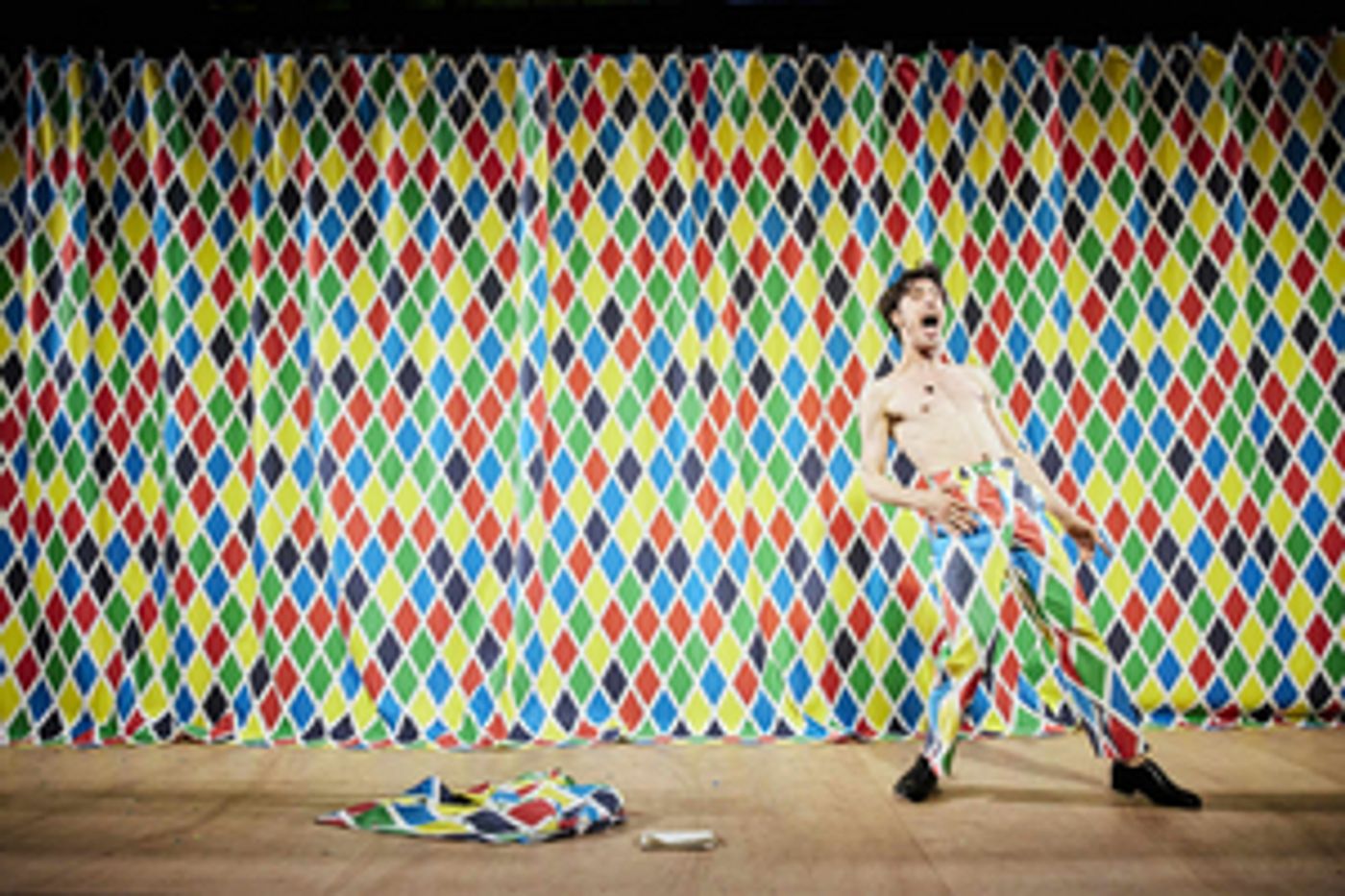Review: The Festival d'Avignon Presents MA JEUNESSE EXALTEE By Olivier Py
Set, costume, and makeup design by Pierre-André Weitz allows for almost limitless imaginative invention.

If this Avignon season's other marathon project, the 13-hour Nid de Cendres, calls to mind a jewel box, Ma Jeunesse Exaltée calls to mind bathroom stall graffiti. The ten-hour long burlesque serves as the capstone to Olivier Py's tenure as artistic director of the Festival d'Avignon. In it he passes the baton, not to Avignon's next artistic director Tiago Rodrigues, but to a new generation of vibrant performers. Amongst this new generation is the indefatigable Bertrand de Roffignac, who performs a staggering harlequin marathon. Through the run time of the performance he never falters in precision or intensity. Indeed, on a scale of one to ten, the entire ensemble never lets the their work calm itself down past an eleven.
Split in four two-hour segments, the piece finds Harlequin (Bertrand de Roffignac) meeting with an infatuated impoverished poet (Xavier Gallais). The two agree on a personal collaboration. Harlequin is then set loose on four youths: a devout atheist (Pauline Deshons), a cultivated learner (Émilien Diard-Detoeuf), a mystic (Geert Van Herwijnen), and a revolutionary (Eva Rami). He corrupts their convictions, which generally leave him unimpressed. He'd rather have some fun. The Harlequin version of fun takes the form of passing off a falsified text by Arthur Rimbaud and offering it to a bishop (Olivier Balazuc), the Minister of Culture (Flannan Obé), and the President (Damien Bigourdan) for a sum that includes power, wealth and their dignity. Antics, reversals, tragedies, and vaudevilles ensue. Two musicians play off stage, and in the case of Antoni Sykopoulos also on stage. Lastly there is the forlorn tragedian, performed by a hilarious Céline Chéenne, who is at once the stilted lover and estranged mother of Harlequin.
Xavier Gallais is perhaps the most grounded figure as the handsome poet who requires the Harlequin to play the role of worthy adversary. Indeed, everyone on stage needs the Harlequin in order to break free from restrictive convictions. Olivier Py has stacked the work with long poetic monologues that tackle serious subjects like theatre, politics, religion, and death. These are performed with Shakespearian intensity as the world containing them becomes more and more absurd. Py has a deep fondness for Shakespeare, who makes a cameo later in the play. The four youths in particular call to mind the lovers of Midsummer with Harlequin playing the role of Puck. However, as the play progresses and Harlequin must save himself from the inferno, the influence of Aristophanes rears his head.
Satire in the play vacillates between broad and cutting. The play's three power brokers split the difference between The Three Stooges and Charlie Hebdo caricatures. Ultimately, if a priest doing a seductive dance in lingerie, cartoonish simulated sex acts under a table, and an 11th hour classical monologue dedicated to a literal turd don't seem like a good night out, this might be a show to pass up. If watching a cast of extraordinary actors push their physical and emotional limits to brink as they careen through a whirlwind plot does, it is unmissable.
Set, costume, and makeup design by Pierre-André Weitz allows for almost limitless imaginative invention. Lighting by Bertrand Killy creates vaudevillian atmosphere, while keeping the dramatic work grounded. Sound by Rémi Berger Spirou doesn't miss a beat. Lastly Olivier Py's original compositions have been beautifully handled by pianist Antoni Sykopoulos and percussionist Julien Jolly. Ma Jeunesse Exaultée is Olivier Py's love song to theatre. It is, it seems, a fraught love. He concedes that the Harlequin that he courted like a muse has left him vulnerable to a state of perpetual amateurishness and adolescence. However, should we pretend we don't need this? Should we pretend that life would be more lived without it? After all, look around you, who is left that is worth impressing?
Photo Credit: Christophe Raynaud de Lage
Reader Reviews
Videos


